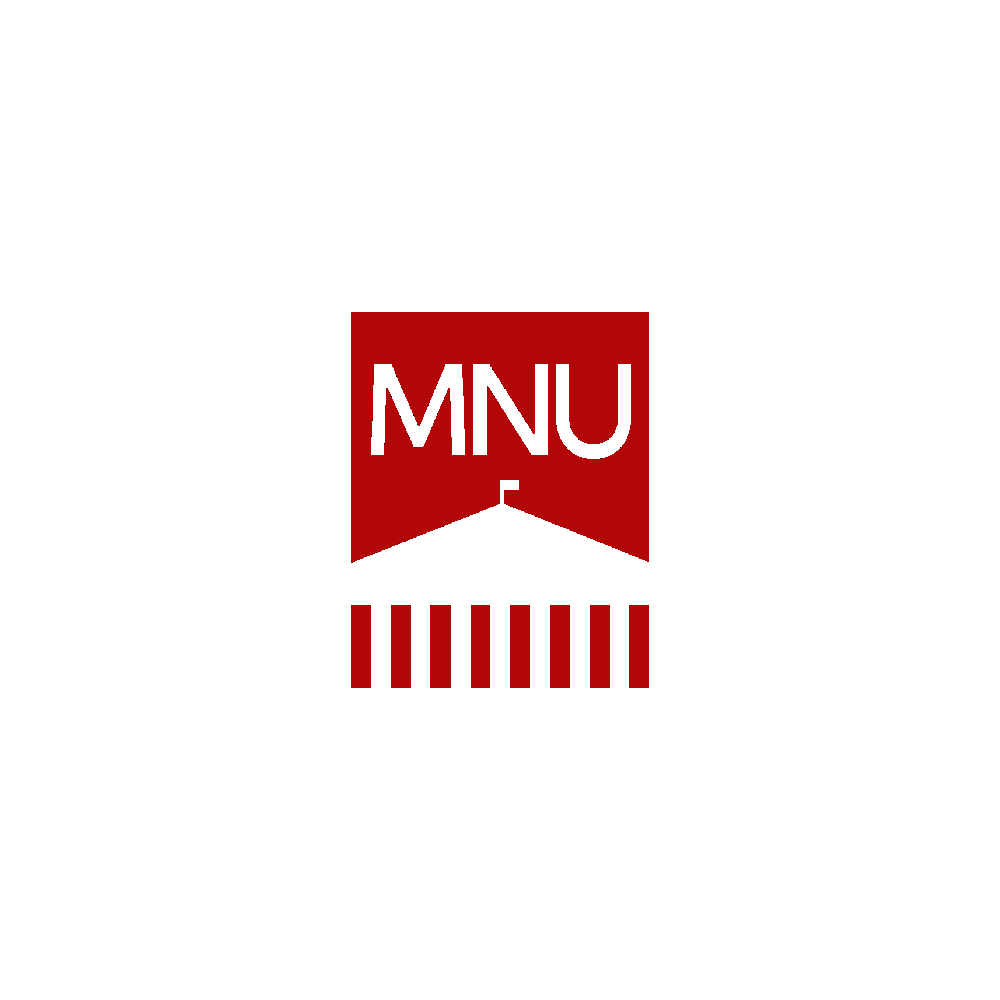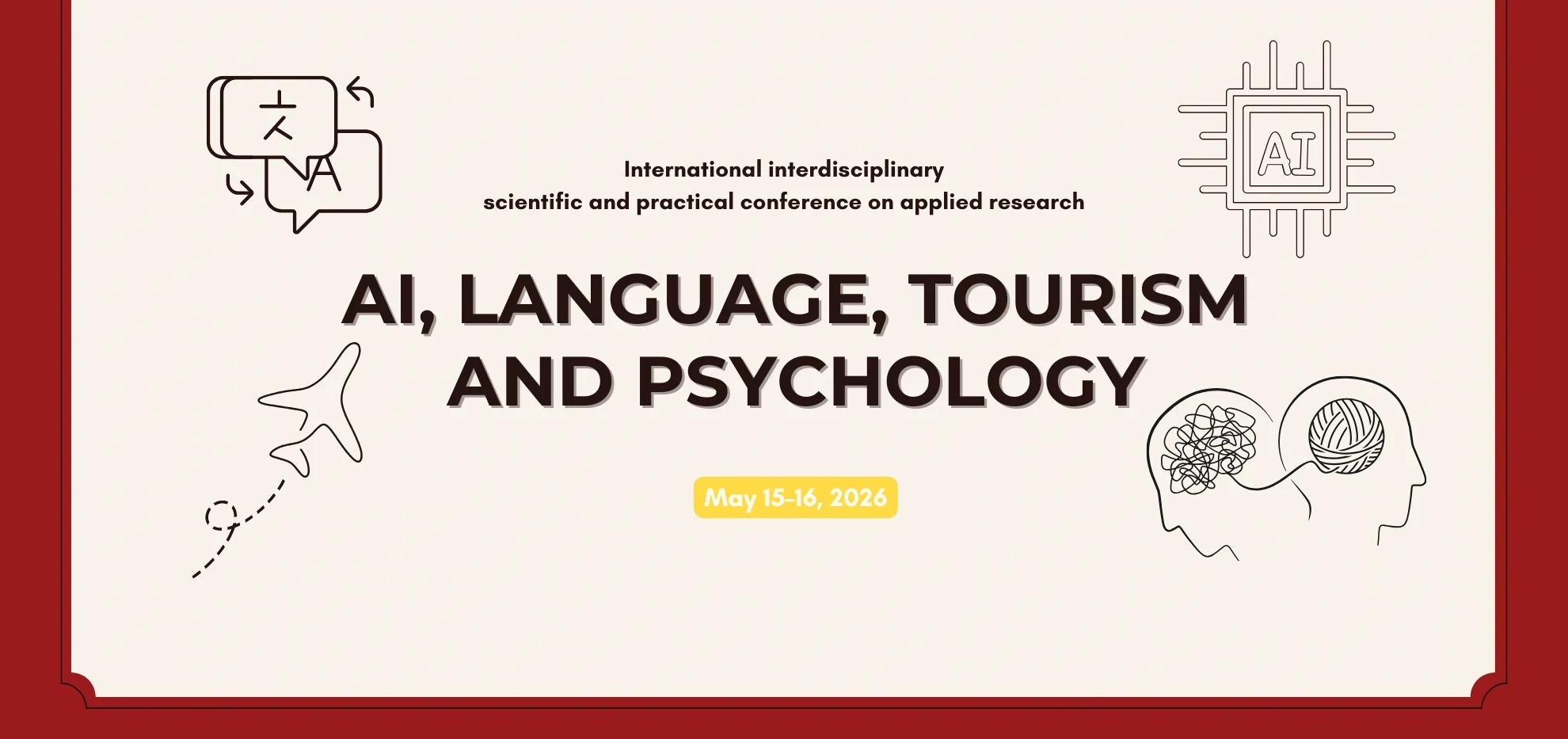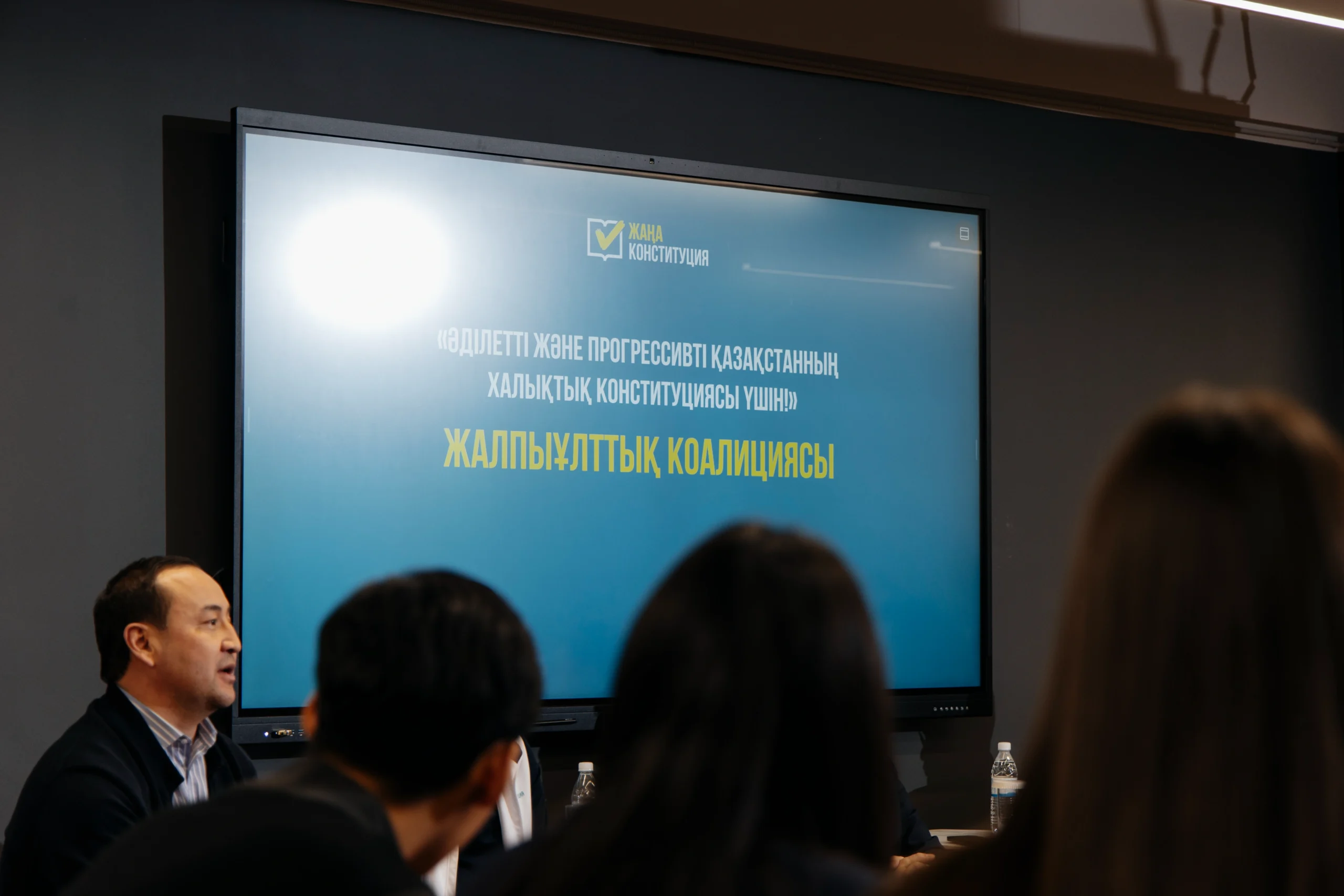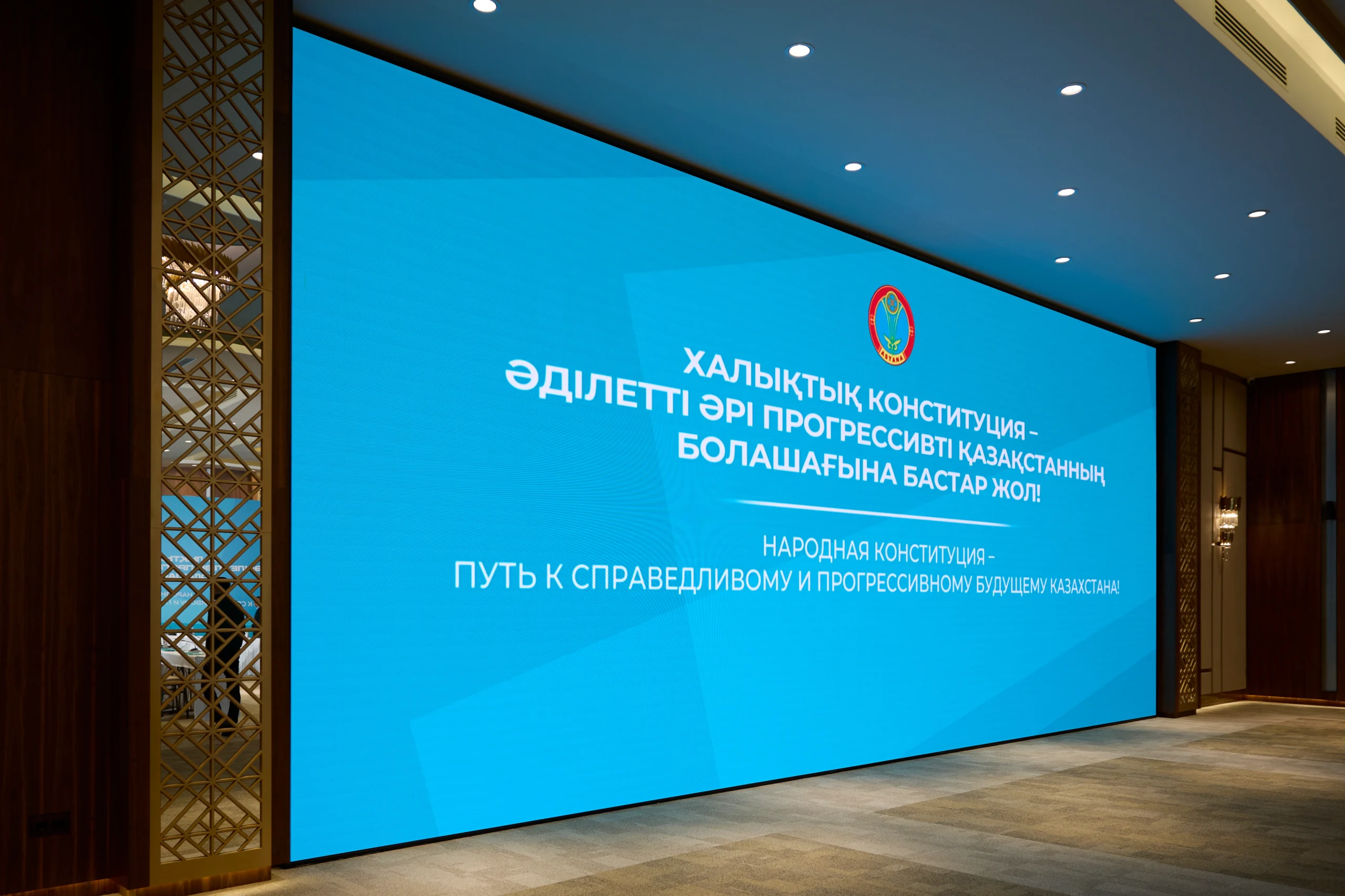Future translators, linguists, psychologists, as well as specialists in tourism and hospitality, are being successfully trained at the School of Liberal Arts (SLA) at Maqsut Narikbayev University (MNU). How are new learning formats being introduced? Is it possible to earn two degrees simultaneously? And what lies behind the School’s high ranking positions? Anar Ibrayeva, Dean of the MNU School of Liberal Arts, provided detailed answers to these and other relevant questions.
– Ms Anar, this year the School of Liberal Arts is graduating more than 300 specialists. What stood out about this academic year? Were all your plans successfully implemented?
– If I were to summarise the past academic year in one phrase, it would be: “growth through internal strength.” We did not chase quick wins, but instead focused on systematically strengthening our academic programmes, expanding partnerships, and thoughtfully constructing academic tracks. As a result, we now see tangible outcomes reflected in numbers, rankings, and feedback from students and employers. Behind each area of academic development stands a dedicated team, a distinct rationale, and a long-term strategic vision. It is in such a context that education becomes more than a process of knowledge acquisition — it transforms into a personal journey for our students, where academic programmes serve as platforms for growth, choice, and professional identity formation.
– Today, SLA is the second largest school at MNU by student numbers, offering five bachelor’s and three master’s degree programmes. In your view, which areas have become the key growth points for the 2024/2025 academic year? What is the secret behind the high graduate employment rate?
– The School of Liberal Arts at MNU plays a pivotal role in training highly qualified specialists in the humanities, tourism, and psychology. Each of our five undergraduate and three postgraduate programmes continues to grow in strength and capacity, as evidenced not by claims, but by concrete achievements.
For instance, in the 2024–2025 academic year, SLA recorded significant growth in several core areas. Our Tourism programme, which ranked first in the National Chamber of Entrepreneurs of the Republic of Kazakhstan “Atameken” rating, has further cemented its leadership in practice-oriented education. Students in this field benefit from internships and practical placements at globally renowned hotel chains such as Marriott (including The Ritz-Carlton, The St. Regis, Sheraton), and with Dubai Holding Group Services (Jumeirah Group). Over one hundred students have already successfully completed dual training programmes, proving their readiness to work according to international standards. Furthermore, international internships in the UAE, Turkey, and Vietnam are expanding, offering not only valuable experience but also a strong launchpad for students’ careers. They are involved in all major operational areas—from front office services to event management and guest relations—and often receive job offers before graduation, along with international certificates and letters of recommendation.
Turning to our Applied Linguistics programme — also top-ranked by Atameken — it focuses on language technologies, digital communication, and intercultural competence. The curriculum features modern courses in TESOL (Teaching English to Speakers of Other Languages), media linguistics, and translation. Collaborations with international schools and language centres such as QSI, Quantum STEM School, Haileybury Astana, and Riviera International School provide students with immediate exposure to real-world teaching and language practice from their very first year.
The Translation Studies programme consistently ranks among the top three in Kazakhstan. We take great pride in our students and graduates, who frequently engage in both simultaneous and consecutive interpretation at high-profile events, including meetings between heads of state and major international forums. This year alone, they have contributed to the Kapuscinski Lectures, the CICA Forum, the media accessibility conference, and numerous festivals celebrating culture and language. Our translation activities span institutions such as the Ministry of Foreign Affairs, the Foreign Trade Chamber, QazaqGaz, and the country’s leading translation agencies.
Lastly, our Psychology programme — one of the most relevant and sought-after — stands out for its unique content and contemporary minors in high-demand fields, including Cognitive Behavioural Therapy (CBT), HR Analytics, Legal Psychology, and Applied Behaviour Analysis. Our students undertake practical placements in prestigious healthcare, education, and business institutions, including Nazarbayev University, the City Mental Health Centre, the Samruk Business Academy, and the University Medical Centre.
One of the main indicators of our effectiveness is the exceptionally high employment rate of our graduates — 91%. This success is the result of a systematic and strategic approach: regular analysis of employers’ expectations, direct involvement of industry professionals in the educational process (including our annual Business Councils), large-scale job fairs with over 100 participating companies, and paid internship opportunities both domestically and abroad. Approximately 30% of our students receive job offers immediately following their internships. We also provide targeted support to our alumni, tracking their career progress and using this data to keep our programmes aligned with evolving industry demands.
I can state with confidence that SLA’s current achievements stem from an integrated approach — combining relevant academic content, close ties with the professional community, international collaborations, and personalised development paths for each student. We are proud of what we have accomplished so far, but we remain committed to further expanding our impact and influence.
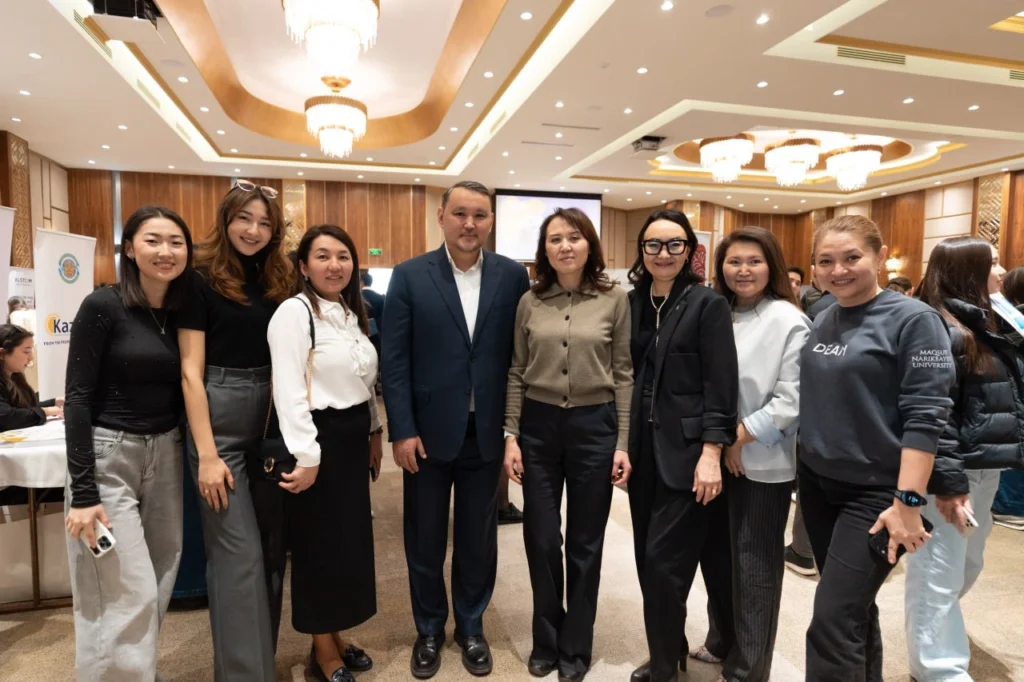
– The programmes offered by the School of Liberal Arts have secured leading positions in the updated ranking of educational programmes by the Atameken National Chamber of Entrepreneurs of the Republic of Kazakhstan. Notably, Applied Linguistics, participating in the ranking for the first time, immediately took first place. What accounts for this success, and what accreditations do the school’s programmes hold?
– Speaking specifically about our programmes, Applied Linguistics — launched in 2019 — remains the only programme in Kazakhstan that trains specialists in this field entirely in English. It was developed with the support of international experts and is based on leading global practices in applied linguistics. The inclusion of additional specialisations — TESOL, media linguistics, and conference interpretation — as well as six foreign language options (German, French, Spanish, Chinese, Korean, and Turkish), significantly enhances our graduates’ competitiveness in the labour market. The programme is accredited by the German FIBAA agency. However, our greatest pride lies in our faculty members, who play an essential role in shaping the educational pathway and the graduate profile of the programme. These are specialists with academic backgrounds from prestigious institutions such as the University of Cambridge, University of Aberdeen, University of Leicester, Lanzhou University, and other top universities across Europe, the United States, Asia, and Kazakhstan.
– You recently visited Soka University in Japan, where agreements were reached to increase student participation in academic mobility. Dual degree programmes with foreign institutions are known to be a hallmark of the school. How is international cooperation developing, and what opportunities do students gain through studying abroad and interning with international companies?
– Our visit to Soka University in Tokyo marked a significant milestone in expanding the international cooperation of the School of Liberal Arts at MNU. During our meetings, we agreed to increase the number of students participating in academic mobility (this year, four Japanese students studied with us, while six of our students attended Soka University). We also explored prospects for faculty exchange, joint courses, and the development of a dual degree programme.
International cooperation is indeed a cornerstone of our school’s strategic development. Each year, many of our students participate in academic mobility programmes, gaining not only a high-quality education but also invaluable experience of living and studying in a multicultural environment. In the current academic year, SLA students studied at institutions such as the University of Córdoba (Spain), Turība University (Latvia), University of Ostrava (Czech Republic), Northwestern University (China), University of Dunaújváros (Hungary), Shota Rustaveli State University (Georgia), the University of Copenhagen (Denmark), and, of course, Soka University in Japan.
These international experiences help students adapt to various educational systems, develop academic and linguistic competencies, and build cultural awareness and flexible thinking — skills that are essential in today’s global job market.
Perhaps most importantly, we place particular emphasis on dual degree programmes, which — as you rightly noted — have become a signature feature of the School of Liberal Arts. We currently collaborate with prestigious institutions in France, Switzerland, and the United States, including Excelia Tourism School, Swiss Education Group, and Collège de Paris. These partnerships operate on a 3+1 model: students study for three years at MNU and spend their final year at a partner university. Upon graduation, they receive two diplomas — one from Kazakhstan and one international. We also recently began discussions with the Penn State University School of Hospitality Management regarding a potential Split Educational Programme in Hospitality Management, which would begin enrolling students in 2025. This model not only ensures international-standard academic training but also includes a six-month paid internship with companies in the hospitality, tourism, and service industries — ranging from hotels and cruise lines to airlines. Our partner institutions offer tuition discounts and assist students with housing and integration, while the programme itself contributes to building a professional portfolio and broadening career prospects.
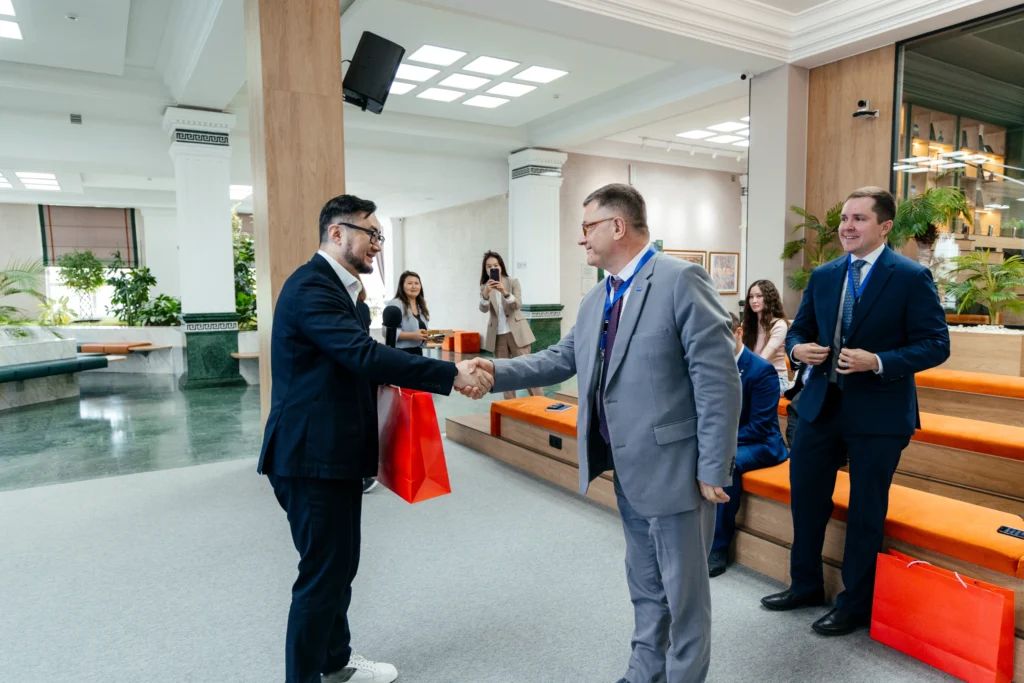
Through the 3+1 format, students earn two degrees, and their parents benefit from peace of mind and reduced costs, since the study abroad component takes place during the final year — when students are more mature and prepared for independent living. One year abroad, rather than four, means lower financial burden and a smoother transition for families.
– The most popular academic programme at the School of Liberal Arts is Translation Studies. Are there any plans to launch a doctoral programme in the near future?
– Indeed, Translation Studies is one of the flagship programmes at the School of Liberal Arts and has earned a reputation as a robust and in-demand academic discipline. We are proud of how the programme continues to evolve, aligning training with the realities of the professional field. The curriculum incorporates cutting-edge technologies such as Bosch simultaneous interpretation equipment, translation memory systems, and leading automation and localisation platforms, including SDL Trados and Phrase. Our students regularly apply their knowledge and skills in real-world contexts, participating in both written and simultaneous translation at top-level international events and forums.
Looking ahead to doctoral education, our focus is on developing the broader field of Language, Linguistics, and Translation as an interdisciplinary research area at the crossroads of the humanities and digital sciences. We plan to launch a PhD programme in this field in the coming years. As you know, contemporary linguistics addresses a wide range of pressing challenges — from language policy and trilingual education to the development of natural language processing technologies. We believe that a doctoral programme in linguistics will prepare a new generation of scholars equipped to conduct research at the intersection of language, politics, culture, history, and technology. The programme will prioritise the development of subfields such as cognitive linguistics, sociolinguistics, media linguistics, and computational linguistics — areas that shape the intellectual landscape of the modern world.
– The School of Liberal Arts recently hosted a number of significant events: the first Kapuscinski Lecture in Central Asia, an Ideaton on Tourism in Astana, and the International SenseAble Conference on Audio Description. The School also received a foreign grant to promote the Kazakh language, while its Russian as a foreign language course attracted students from over 15 countries. How important are these initiatives, and are further collaborations with industry partners planned?
– Our mission goes beyond excellence in teaching; we aim to be at the forefront of initiatives that promote inclusive education, cultural and linguistic diversity, and strong partnerships. We see ourselves as dedicated explorers of new frontiers.
Our participation in the global Kapuscinski Lectures project — where we became the first Central Asian institution to join — underscores this commitment. The lecture delivered by Professor Abhimanyu Sharma of the University of Cambridge, focused on language policy and inclusive society, drew significant public interest and elevated our international academic standing.
In February 2025, we hosted the SenseAble International Conference on Audio Description, a crucial tool for media accessibility for visually impaired individuals. This event convened global experts and contributed to the development of an inclusive cultural landscape in Kazakhstan, where such initiatives are still emerging.
Naturally, we strive to uphold excellence across all areas of our school. For instance, in April this year, the Astana Urban Tourism Ideaton was held, jointly organised with the city Akimat and the Astana Tourism Centre. This event served as a platform for interaction between students, experts, and industry representatives, where concrete proposals for the development of the urban tourism environment were presented.
We are particularly proud of the foreign grant for the promotion of the Kazakh language, which supported the launch of a unique online course for international audiences. This course attracted interest from learners in more than 15 countries. I recall a particularly memorable example: one of our project participants from Europe, inspired by the course, wrote a book about Kazakhstan, the presentation of which will soon take place in Almaty.
In addition to the aforementioned, one of the school’s key initiatives is the development of the “Russian as a Foreign Language” course, which serves not only as a linguistic offering, but also as a cultural and diplomatic bridge between Kazakhstan and the wider world. As part of our “A Year Abroad” programme, we collaborate with undergraduate students from the United Kingdom — enrolling students from universities such as UCL, St Andrews, Cambridge, Oxford — as well as from Japan, South Korea, Denmark, the UAE, and France. We aim to present our country as a model of a state where people, cultures, traditions, and modern achievements coexist in harmony.
Of course, these projects represent only a portion of the large-scale initiatives we undertake. In the near future, we plan to continue our collaboration with UNDP, and to develop joint initiatives in the fields of language policy, education, and tourism, while also more actively integrating the research component into the school’s educational projects.
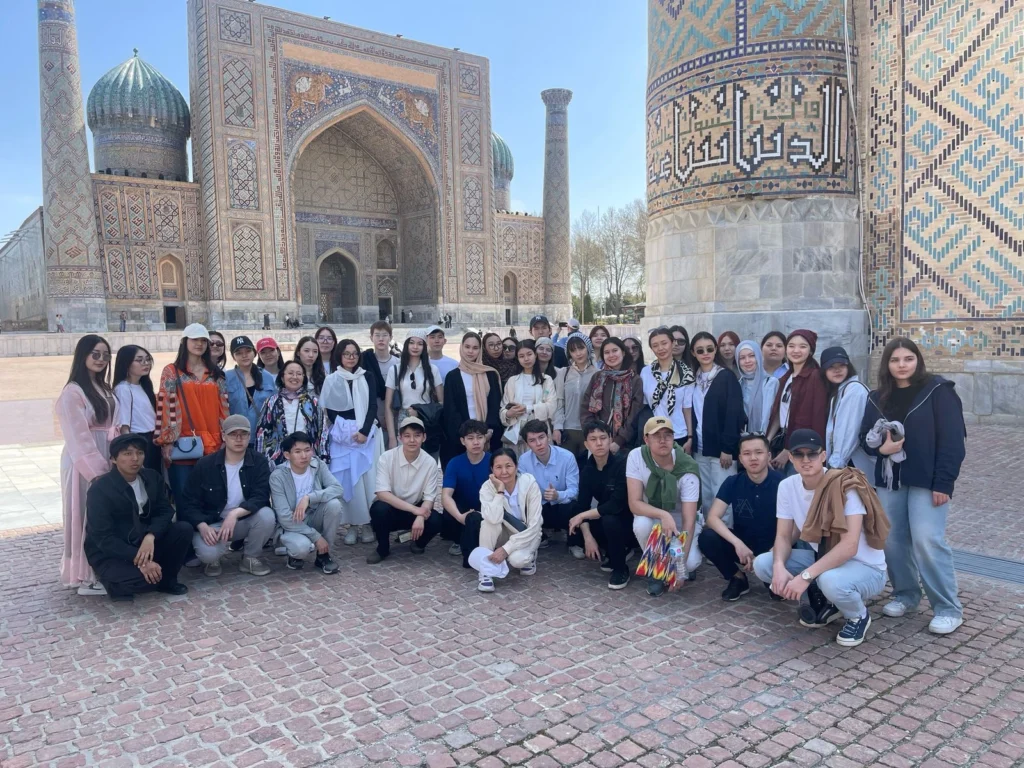
– Another important project of the school is the study of the discipline History of Kazakhstan in a new format, in which, in addition to the theoretical part, students visit iconic places of the republic and participate in the preparation of a performance dedicated to historical events. Has this format helped students develop critical thinking and build a sense of national pride and respect for their ancestral heritage?
– The current format of teaching the History of Kazakhstan course at Maqsut Narikbayev University represents a modern approach, blending academic rigour with practice-oriented methods. The primary objective of this format is not merely to transmit historical facts, but to cultivate in our students a profound understanding of historical processes, a respect for cultural heritage, and a sense of pride in Kazakhstan.
The training encompasses not only traditional seminars and work with written sources, but also historical and tourist excursions to sacred sites across Kazakhstan. This allows students to study history “live,” directly at the locations where it unfolded. The route includes such iconic landmarks as the cities of the Great Silk Road (Otyrar, Turkestan, Taraz), the Saka burial mounds of Zhetysu and Berel, and the petroglyphs of Besterek and Terekty-Auliye. The geographical scope of the excursions spans the entire country — from Zhidebay in the east to Beket Ata in the west, and from Burabay in the north to Turkestan in the south.
Since 2024, students have also begun travelling abroad — to Tashkent and Samarkand — where they study the centuries-old ties between the Kazakh and Uzbek peoples, learn about shared cultural heritage, and explore the historical crossroads of Central Asia. Since we launched this initiative in 2013, nearly 3,000 students have participated in our excursions as of March 2025.
What we particularly value is the heightened engagement of students in historical projects. Following these trips, they begin independently seeking further information, critically analysing what they have observed, drawing comparisons between past and present, and sharing insights with lecturers. Many of them express a sincere desire to contribute to the country’s development. This conscious and active involvement is immensely encouraging.
I would also like to highlight the historical performances that students stage at the conclusion of the modules. These productions not only consolidate the knowledge acquired, but also develop critical thinking, creative imagination, and the ability to interpret historical context. In preparing these performances, students delve into the lives of historical figures, reconstruct events, and analyse the role of the people in shaping the nation’s destiny. This allows them to experience the spirit of the era, comprehend the sacrifices and accomplishments of their ancestors, and grasp the importance of independence and sustainable development. Ultimately, this fosters a deep emotional and intellectual connection with the historical past.
This integration of theory, practical experience, and personal reflection makes the learning process vivid, meaningful, and memorable. At our university, the History of Kazakhstan course has evolved beyond a standard academic discipline into a vehicle for shaping civic identity and patriotic sentiment. Thanks to this approach, history is not viewed as a distant past, but rather as the foundation of the present and a springboard for the future.
– As you know, many students of the School of Liberal Arts successfully pass international certification exams such as IELTS, TOEFL, TOLES, and Cambridge. How does the School support their preparation for these assessments?
– Our university actively supports students in preparing for international examinations including IELTS, TOEFL, TOLES, and Cambridge qualifications. Students studying second foreign languages as part of their core curriculum also have the opportunity to prepare for and undertake internationally recognised examinations such as DELE in Spanish, DELF in French, HSK in Chinese, TOPIK in Korean, TestDaF or the Goethe-Zertifikat in German, and TYS in Turkish. This support is implemented through a comprehensive system comprising specialised preparatory courses and strategic partnerships.
Within the School, the English Language Department offers dedicated IELTS preparation courses led by experienced instructors. Moreover, we are an official British Council testing centre, where both students and external candidates may take the exam under optimal conditions, using modern equipment in a comfortable setting. We place great emphasis on maintaining high-quality standards throughout the examination process. Notably, IELTS is recognised as one of the admission criteria for our university.
We also recognise the TOEFL iBT, which students can take on campus under the supervision of certified invigilators, thanks to our partnership with ETS (USA).
I would also like to highlight that for the past four years, the School of Liberal Arts has been a proud partner of the Cambridge Exam Centre. This collaboration has yielded tangible benefits for our students. In their first year, students across all programmes follow the Cambridge English curriculum and have the opportunity to take international examinations such as PET, FCE, and CAE — certifications that are widely recognised when applying for jobs, internships, or further study abroad. Additionally, students pursuing a TESOL minor may take the TKT (Teaching Knowledge Test), an international qualification that validates their knowledge of English language teaching methodologies, and they complete a teaching internship under the supervision of CELTA- and DELTA-certified professionals.
With regard to specialised English training, elective courses for students in Translation and Law include TOLES (UK) legal English programmes. These are also offered as corporate training for legal firms. The TOLES Foundation (entry-level), TOLES Higher, and TOLES Advanced courses are in high demand among both SLA and law students.
In essence, the School of Liberal Arts ensures students are well-prepared for international certification through carefully designed programmes, expert instruction, and a personalised approach to learning.
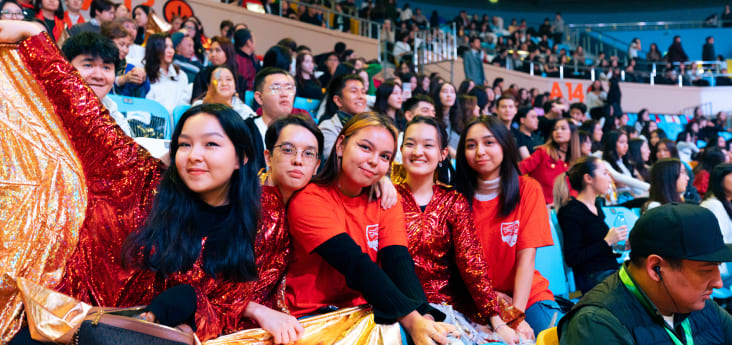
– The School’s vision is to become the leading liberal arts, linguistic, and certification centre in Central Asia, offering language education and graduating specialists in the social sciences and humanities to international standards. What is required to achieve this, and what are the School’s priorities and plans for the upcoming academic year?
– “To become the leading liberal arts, linguistic, and certification centre in Central Asia” — this is not merely a mission statement for us, but a guiding principle towards which we are steadily advancing. In the coming academic year, our priorities include strengthening the academic core, enhancing educational programmes, expanding international partnerships, and launching new educational and research initiatives.
Key priorities include the development of a PhD programme in Linguistics, as previously mentioned, the introduction of additional minors focusing on the digital and applied aspects of the humanities, the integration of artificial intelligence into our curriculum, and the reinforcement of practice-oriented education and research in disciplines such as language studies, psychology, and tourism.
We are committed to nurturing specialists who perceive language not merely as a tool for communication, but also as a professional, research, and cultural asset. Of course, we harbour ambitious goals, objectives, and aspirations. Yet with the commitment of our team, the energy of our students, and a steadfast strategic direction, these ambitions are entirely within reach.
– Tomorrow marks the final school day across the Republic. School graduates will soon face final examinations and the difficult decision of choosing a university. Why, in your view, should prospective students choose Maqsut Narikbayev University?
– I always tell parents and applicants that every graduate stands at a crucial crossroads — choosing where to go next, how to spend the coming years, and with whom to embark on that journey. Maqsut Narikbayev University is far more than a modern campus with beautiful facilities; it is a nurturing environment where people are heard, supported, and presented with meaningful opportunities. Our students develop not only academically, but also personally, learning to think critically, speak with confidence, and act responsibly.
I am proud to work alongside our outstanding faculty, dedicated professors, and committed administrative staff. We boast strong academic personnel, international programmes, a vibrant student life, hands-on learning experiences from the first year, and genuine prospects — from overseas internships and international diplomas to employment opportunities in leading domestic and global organisations.
Above all, we teach our students to be courageous, open-minded, and prepared for the challenges of the modern world. So, if you are looking to grow, learn from the best, and believe in yourself, then Maqsut Narikbayev University is the place for you. We look forward to welcoming you!
– Thank you for this insightful conversation!
